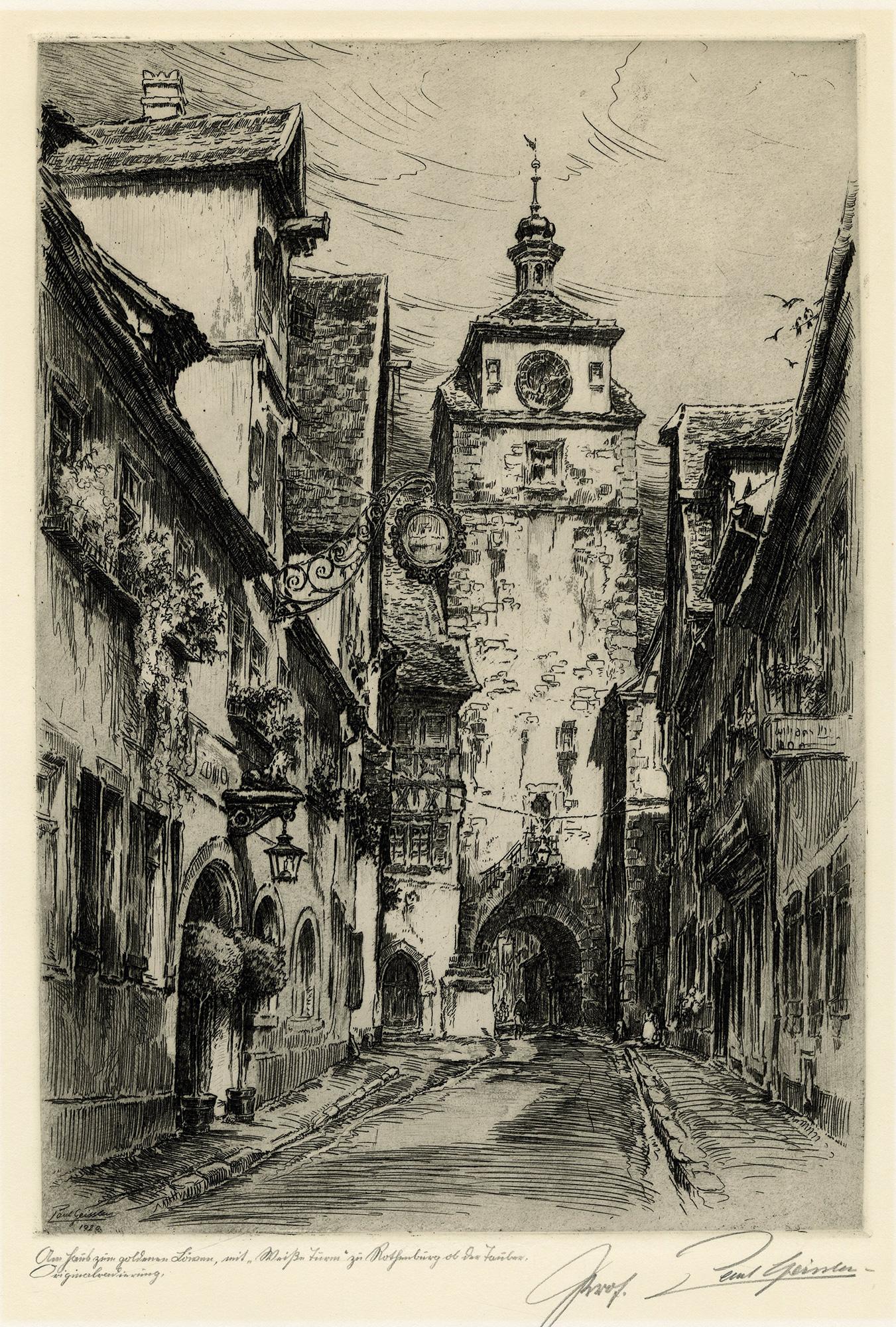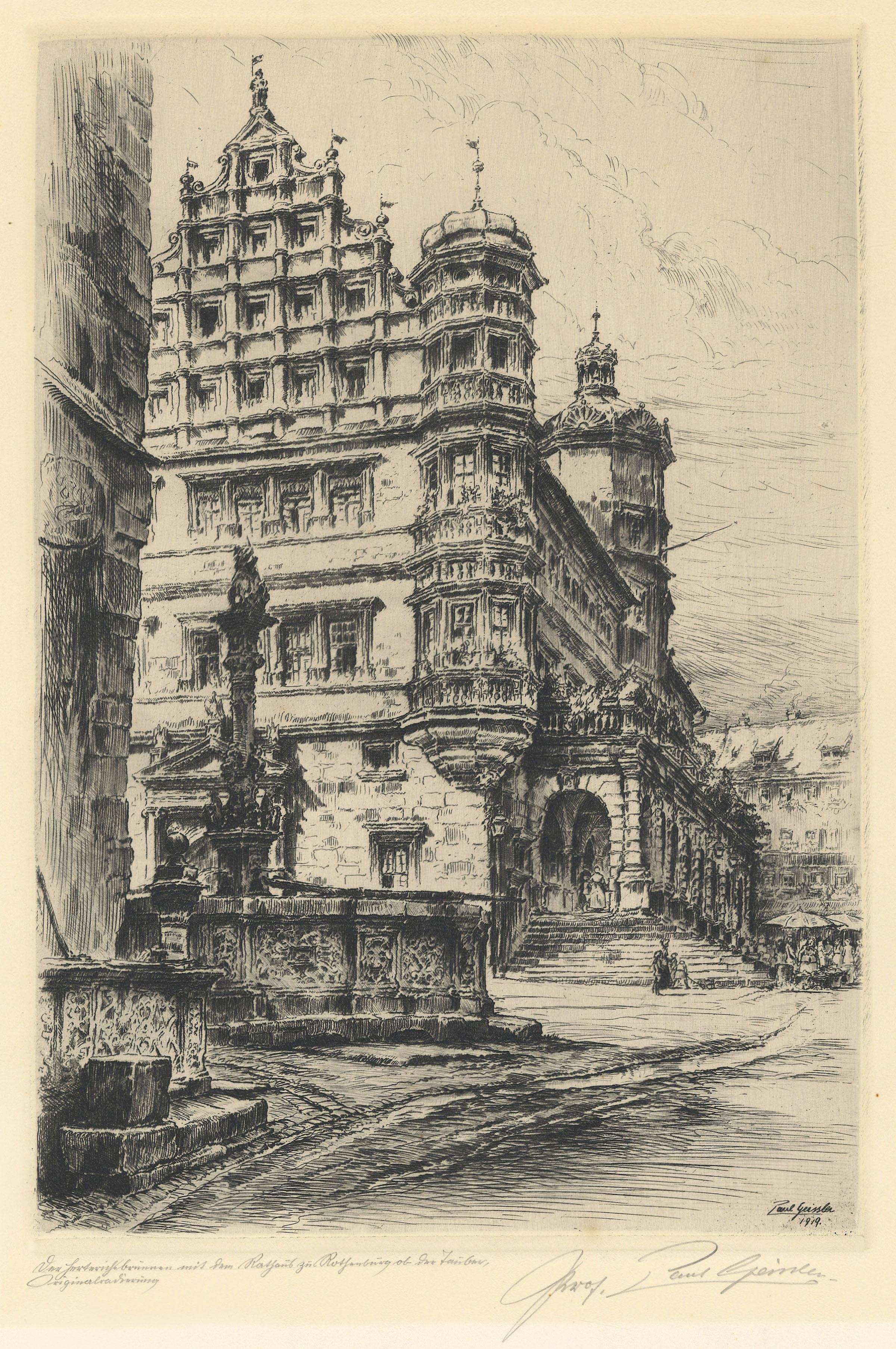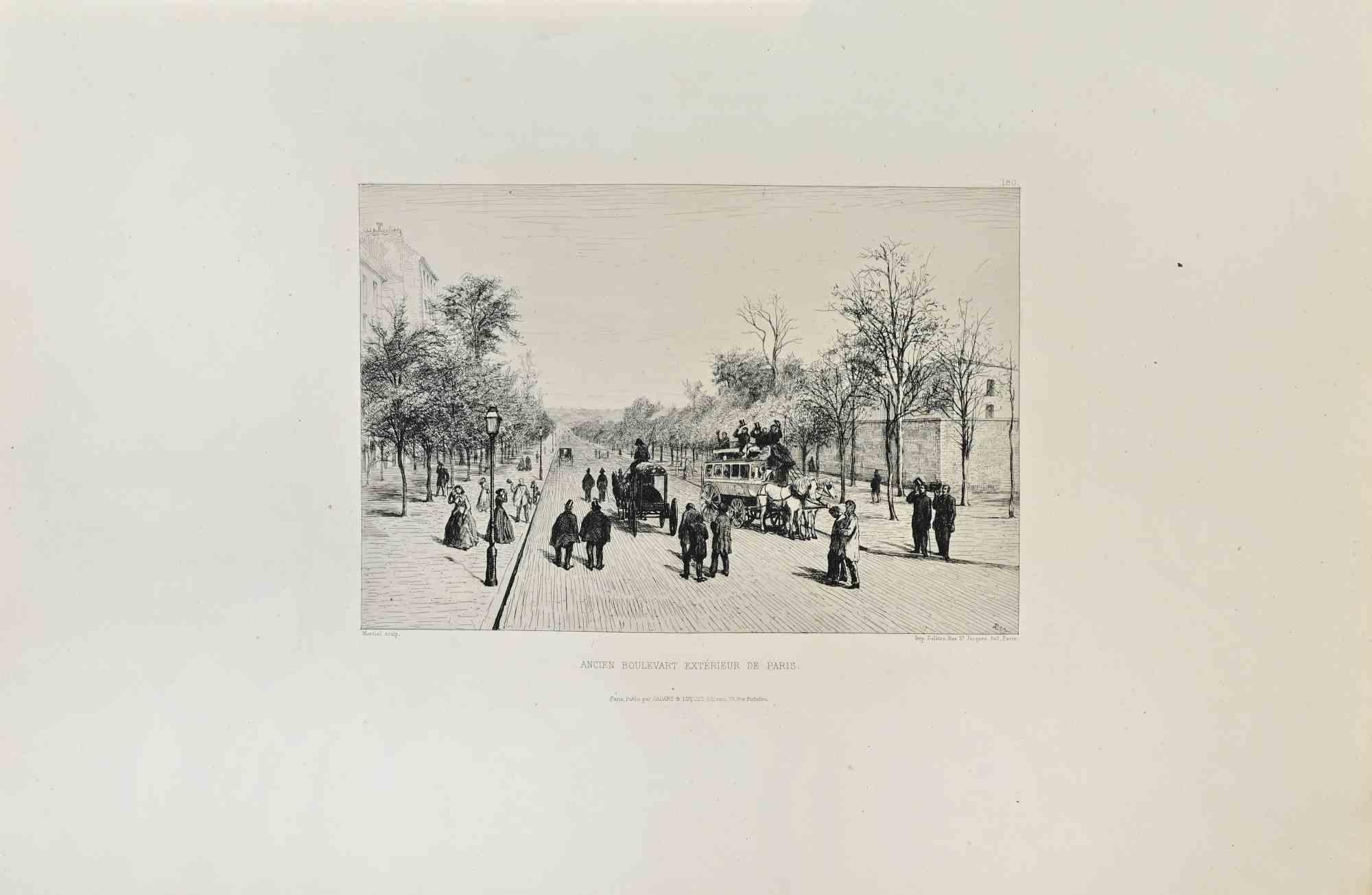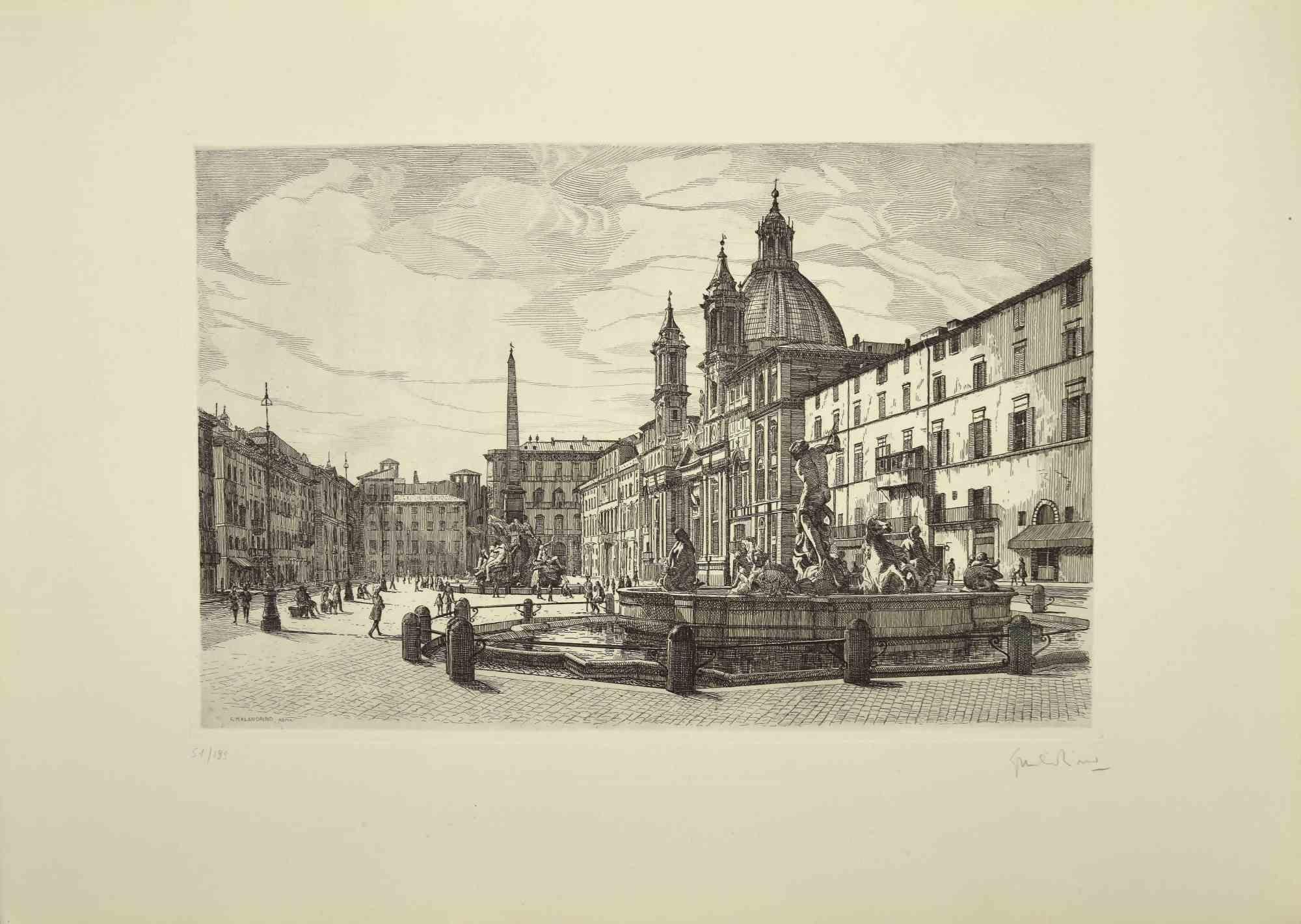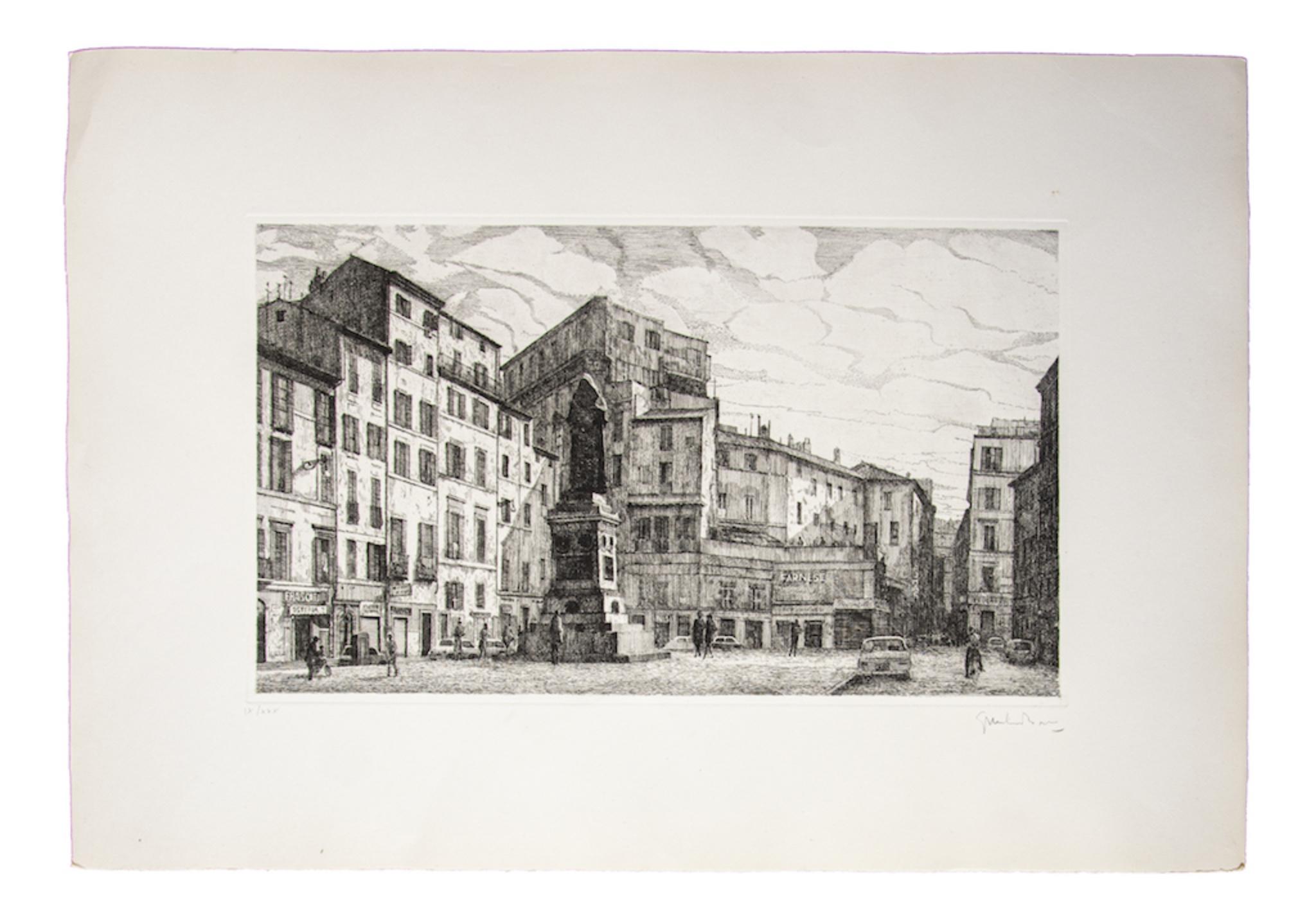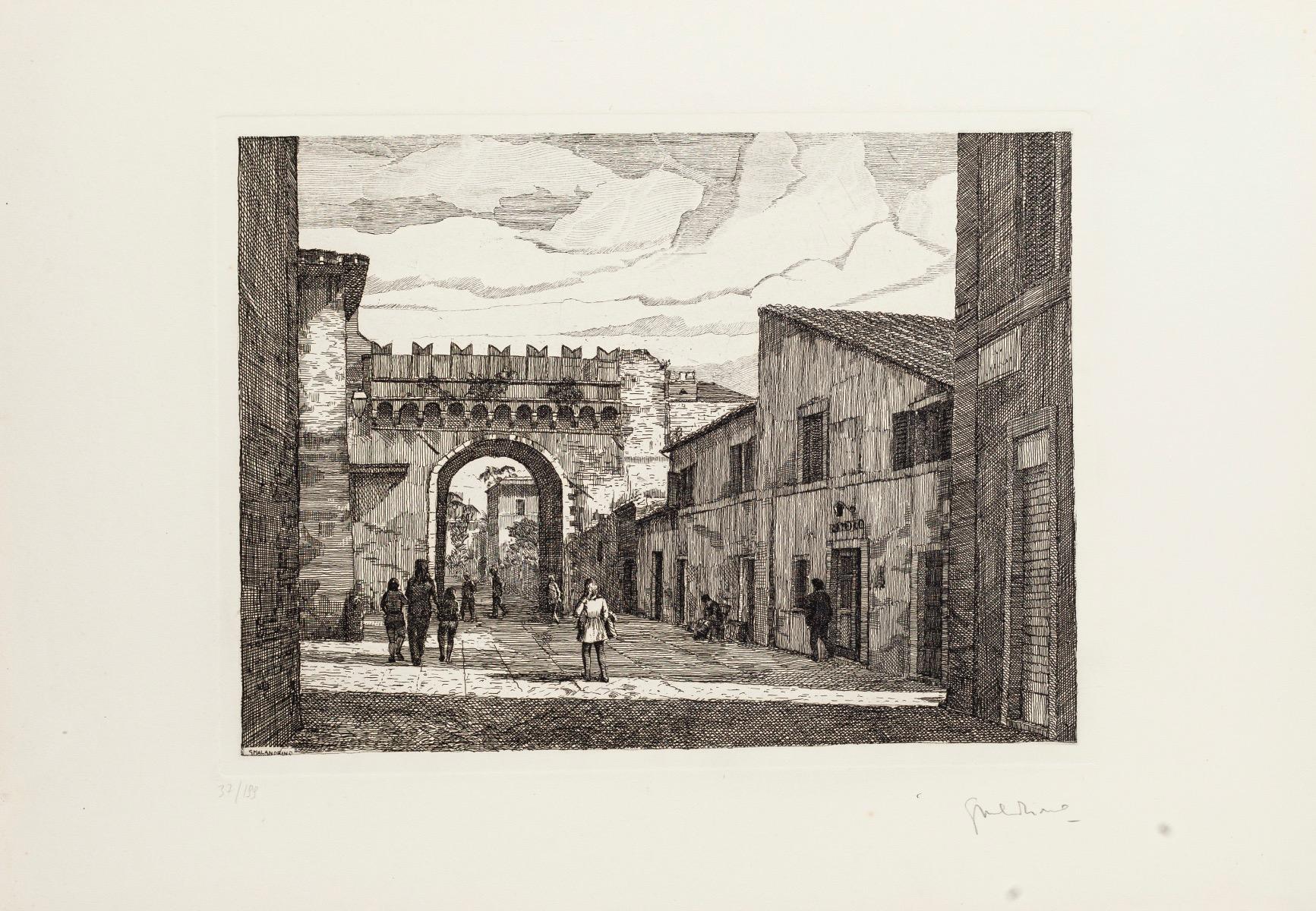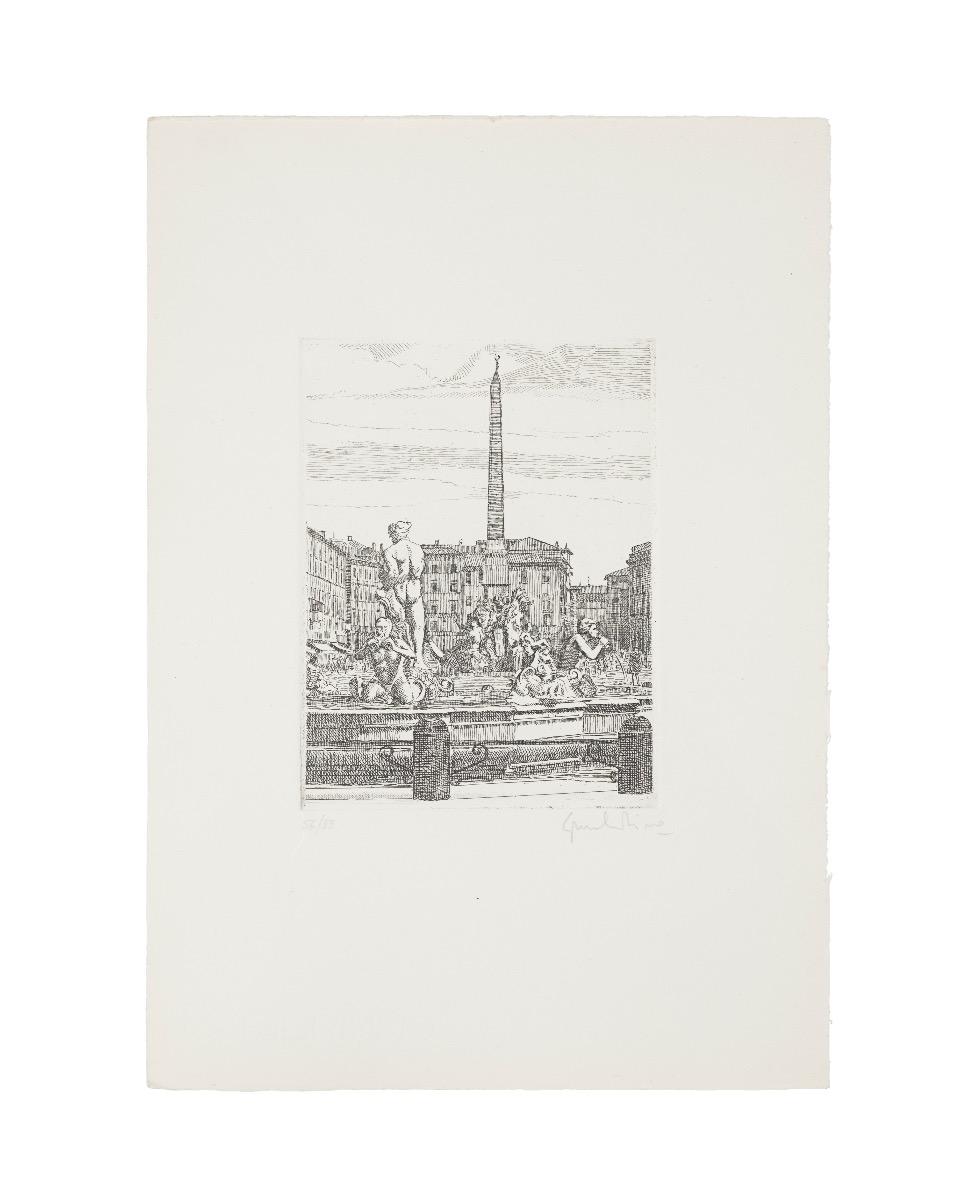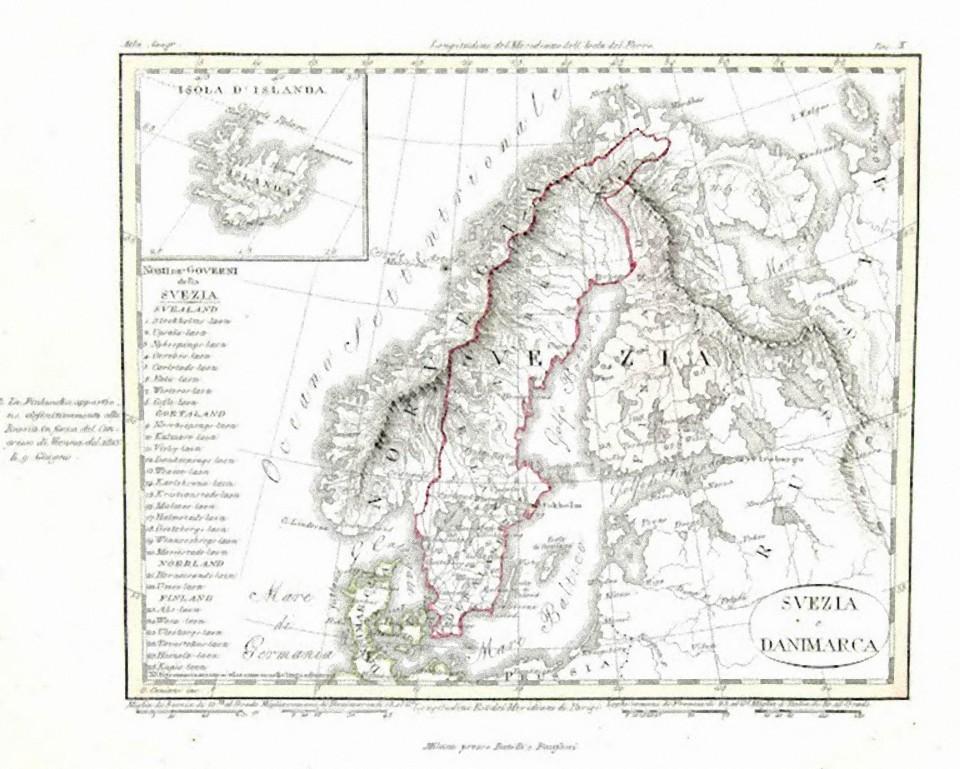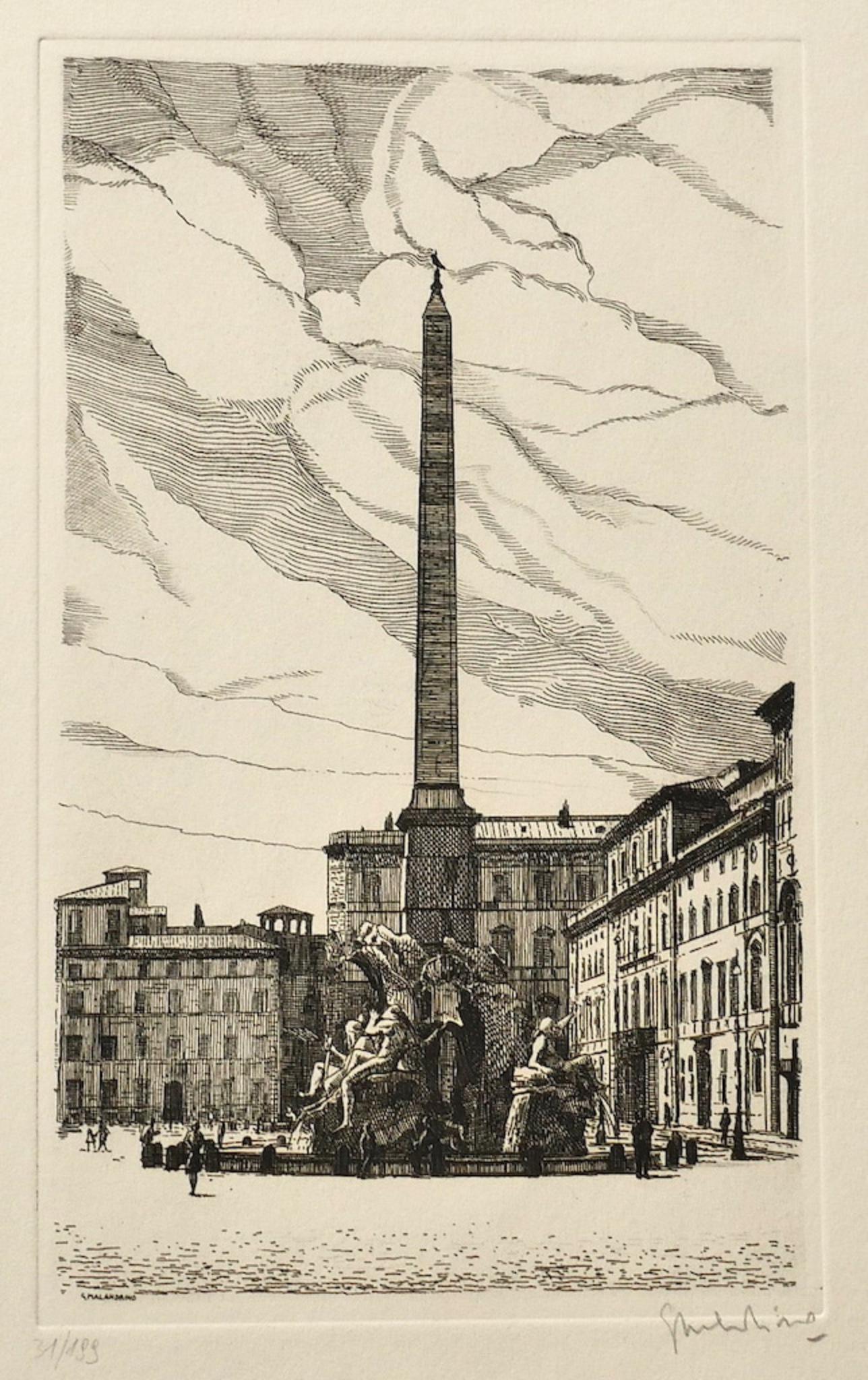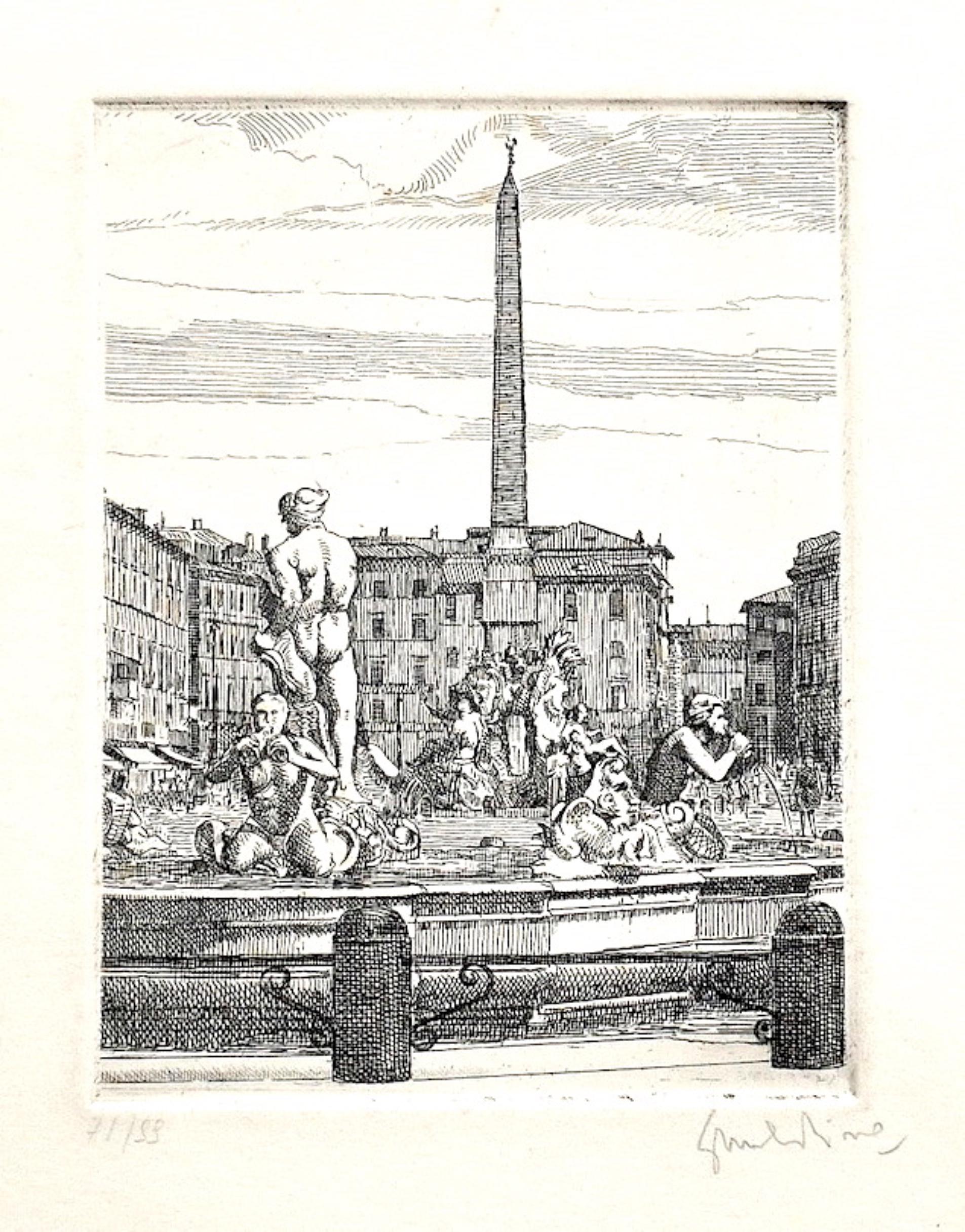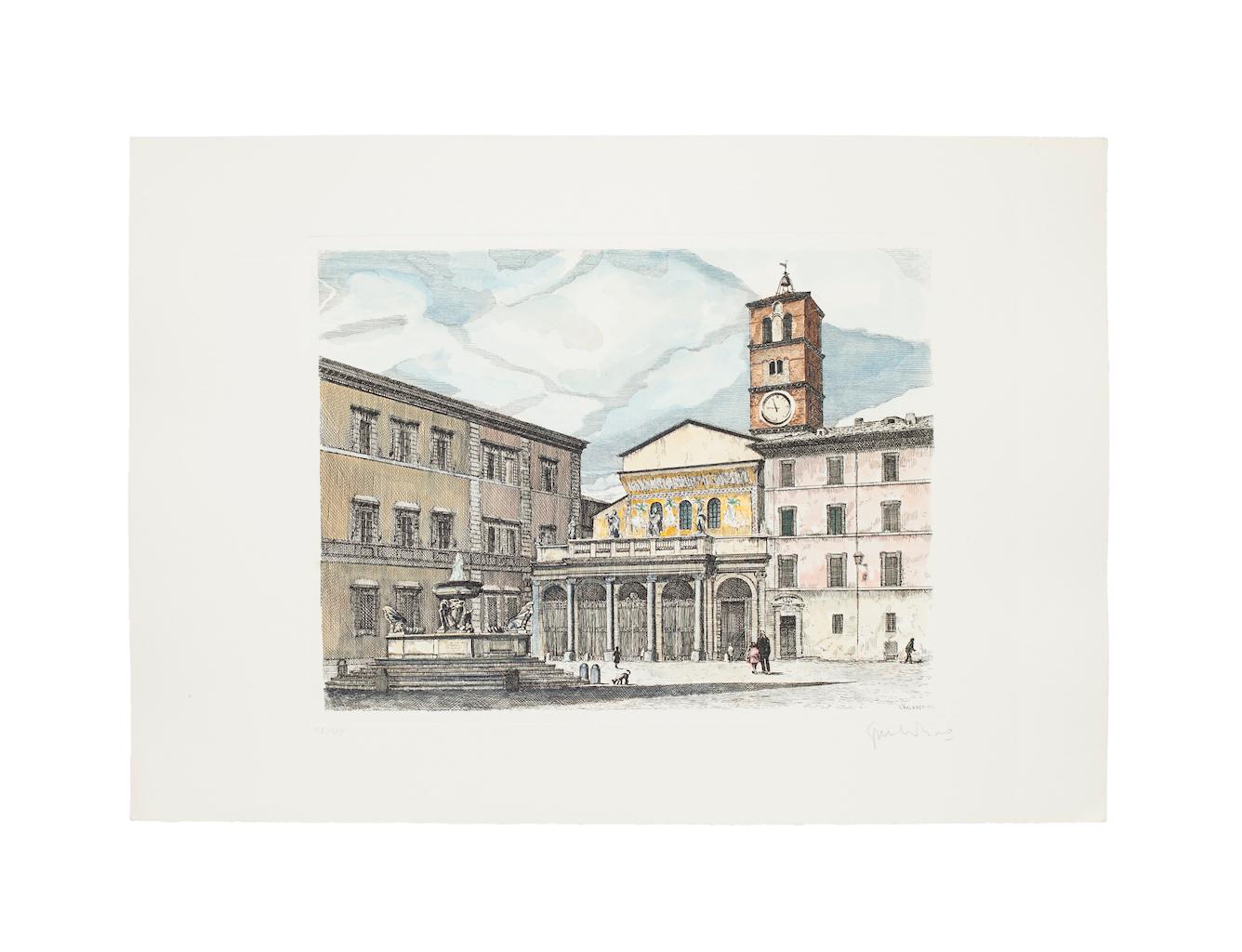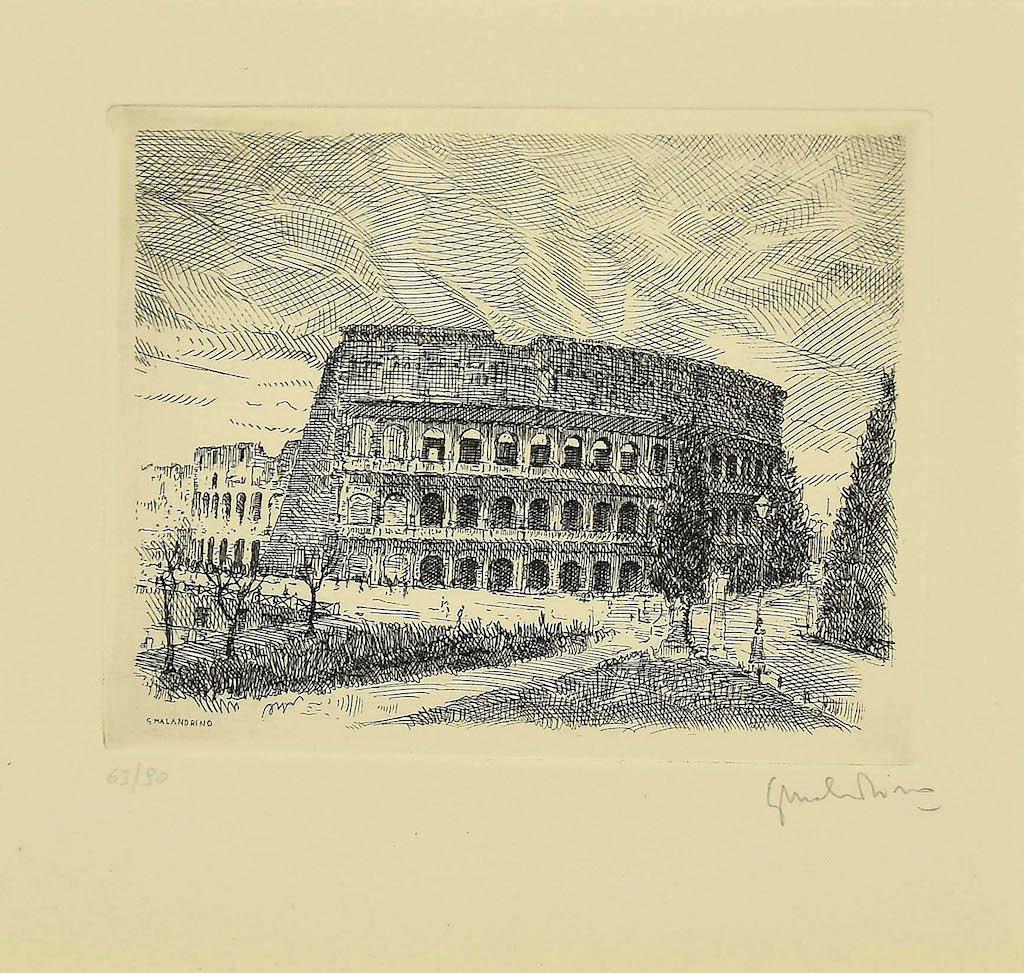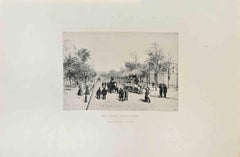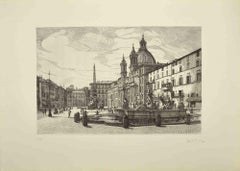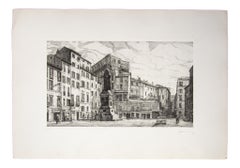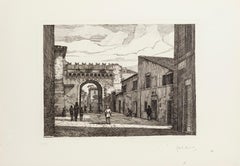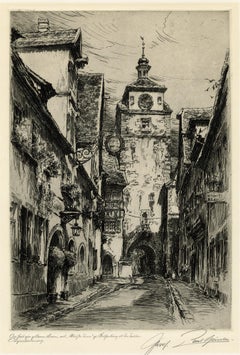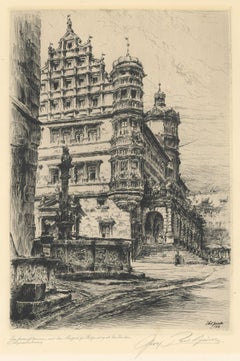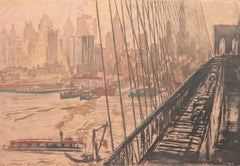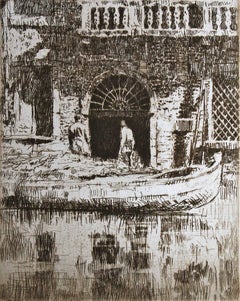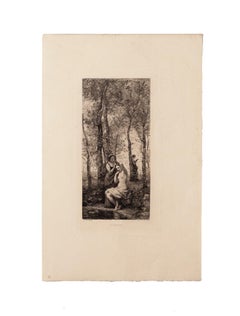
La Toilette - Original Etching after Camille Corot - Early 20th Century
View Similar Items
Want more images or videos?
Request additional images or videos from the seller
1 of 2
La Toilette - Original Etching after Camille Corot - Early 20th CenturyEarly 20th Century
Early 20th Century
About the Item
- Creation Year:Early 20th Century
- Dimensions:Height: 10.24 in (26 cm)Width: 5.12 in (13 cm)Depth: 0.04 in (1 mm)
- Medium:
- Movement & Style:
- After:Jean-Baptiste-Camille Corot (1796-1875, French)
- Period:
- Framing:Framing Options Available
- Condition:Insurance may be requested by customers as additional service, contact us for more information.
- Gallery Location:Roma, IT
- Reference Number:Seller: M-1145861stDibs: LU65037543842
About the Seller
4.9
Platinum Seller
Premium sellers with a 4.7+ rating and 24-hour response times
1stDibs seller since 2017
7,529 sales on 1stDibs
Typical response time: 1 hour
Authenticity Guarantee
In the unlikely event there’s an issue with an item’s authenticity, contact us within 1 year for a full refund. DetailsMoney-Back Guarantee
If your item is not as described, is damaged in transit, or does not arrive, contact us within 7 days for a full refund. Details24-Hour Cancellation
You have a 24-hour grace period in which to reconsider your purchase, with no questions asked.Vetted Professional Sellers
Our world-class sellers must adhere to strict standards for service and quality, maintaining the integrity of our listings.Price-Match Guarantee
If you find that a seller listed the same item for a lower price elsewhere, we’ll match it.Trusted Global Delivery
Our best-in-class carrier network provides specialized shipping options worldwide, including custom delivery.More From This Seller
View AllAncien Boulevard Extérieur de Paris - Etching by Adolphe Martial-Potémon - 1870s
By Adolphe Martial-Potémont
Located in Roma, IT
Ancien Boulevard Extérieur de Paris is an artwork realized by Adolphe Martial-Potémon in the 1870s.
Etching.
Image size:20x28.
Good conditions.
Realized for the "Société des Aq...
Category
1870s Modern Figurative Prints
Materials
Etching
View of Piazza Navona - Etching by Giuseppe Malandrino - 1970
By Giuseppe Malandrino
Located in Roma, IT
View of Piazza Navona is an original contemporary artwork realized in 1970 by the Italian artist Giuseppe Malandrino (Modica, 1910 - Rome, 1979).
Etching on cardboard.
Hand-si...
Category
1970s Modern Landscape Prints
Materials
Etching
Roma Campo de' Fiori - Original Etching by Giuseppe Malandrino - 1971
By Giuseppe Malandrino
Located in Roma, IT
Roma Campo de' Fiori is an original contemporary artwork realized in 1971 by the Italian artist Giuseppe Malandrino (Modica, 1910 - Rome, 1979).
Etching on Paper.
Hand-signed in pe...
Category
1970s Modern Landscape Prints
Materials
Etching
Rome - Porta Settimiana - Original Etching by Giuseppe Malandrino - 1970s
By Giuseppe Malandrino
Located in Roma, IT
Rome - Porta Settimiana is an original etching artwork realized by the Italian artist Giuseppe Malandrino.
Hand-signed by the artist on the lower right in pencil.
Numbered in Roman...
Category
1970s Modern Landscape Prints
Materials
Etching
Navona Square - Rome - Original Etching by Giuseppe Malandrino - 1970s
By Giuseppe Malandrino
Located in Roma, IT
Navona Square - Rome is an original artwork realized by Giuseppe Malandrino.
Original print in etching technique.
Hand-signed by the artist in pencil on the lower right corner. Num...
Category
1970s Modern Landscape Prints
Materials
Etching
Ancient Map of Denmark and Sweden - Original Etching - 19th Century
By Giuseppe Malandrino
Located in Roma, IT
This Map of Denmark and Sweden is an etching realized by an anonymous artist.
The state of preservation of the artwork is good with some small diffused stains.
Sheet dimension: 27x...
Category
Late 19th Century Modern Figurative Prints
Materials
Etching
You May Also Like
Market Square, Rothenburg, Germany
Located in Middletown, NY
Etching and drypoint on cream wove paper, 10 3/4 x 7 1/2 inches (270 x 190 mm), full margins. Signed, inscribed and titled in pencil, lower margin. In good condition with minor mat t...
Category
Early 20th Century Modern Landscape Prints
Materials
Handmade Paper, Drypoint, Etching
City Hall Tower, Rothenburg, Germany.
Located in Middletown, NY
Etching and drypoint on cream wove paper, 10 3/4 x 7 1/2 inches (270 x 190 mm), full margins. Signed, inscribed and titled in pencil, lower margin. Some small, scattered light spots...
Category
Early 20th Century Modern Landscape Prints
Materials
Handmade Paper, Drypoint, Etching
'New York, View of the East River', Paris, Metropolitan Museum, Smithsonian
By Max Pollak
Located in Santa Cruz, CA
Signed lower right, 'Max Pollak' (American, 1886-1970) with number and limitation, lower center, '21/150' and titled, lower left, 'New York: East River'. Published by Rudolph Lesch and with copyright stamp 'Corp. Rud. Lesch NY' in lower left corner. (Reference: Triton cat. 51). Paper dimensions: 13.25 x 18.5 inches.
Max Pollak achieved a reputation for the skill of his etchings as a young man living in Vienna, Austria. He is perhaps best known for his singular and penetrating portrait of Sigmund Freud (1913), which is widely reproduced. Pollak created many portraits of famous figures in Europe, and later in the United States, along with genre scenes and landscapes.
Born in Prague, Czechoslovakia, Max Pollak grew up in Vienna and attended the Vienna Academy of Art, where he studied with the portraitist, Ferdinand Schmutzer...
Category
1920s Modern Landscape Prints
Materials
Paper, Etching
The Doorway.
By James McBey
Located in Storrs, CT
Hardie/Carter 244. 8 1/16 x 6 3/8 (sheet 10 1/4 x 8 1/4). Edition 80, #52. Illustrated: Guichard, British Etchers, 1850-1940; ; Eric Denker, Reflections & Undercurrents: Ernest Roth ...
Category
Early 20th Century Modern Landscape Prints
Materials
Drypoint, Etching
Windsor
By Sir Francis Seymour Haden, R.A.
Located in Storrs, CT
Schneiderman catalog 186 state .xii. 13 1/4 X 17 1/2 (sheet 18 5/8 x 25 5/8). Edition of 50 in this state, published by the Fine Art Society. A fine impression printed on cream wove paper with full margins. Toning in the image, otherwise good condition. Signed in pencil. Housed in a 22 x 28-inch archival mat, suitable for framing.
Born in 1818, Sir Francis Seymour Haden was an etcher, collector and surgeon. He studied at the Derby School, Christ’s Hospital and University College in London. He also studied at the medical schools of the Sorbonne in Paris and at Grenoble. He became a member of the Royal College of Surgeons in 1842 and he was made a fellow in 1857. He was an honorary surgeon to the Department of Science and Art from 1851 to 1867 and in 1847 he settled into a private practice. Haden was a vice-president of the obstetrical society of London and one of the founders of the Royal Hospital for Incurables in 1850.
He was the first President of the Royal Society of Painter-Echers.
In 1858, Haden encouraged James McNeil Whistler to work from nature and consequently, Whistler dedicated his first set of etchings entitled “French Set”, to Haden. The etchings were printed by Auguste Delâtre in Paris and marketed, with some help from Haden, in London. In 1859 Whistler settled in London and often visited Haden’s Sloane Street home. Whistler executed a number of paintings and etchings of domestic scenes within Haden’s home, among them “Reading By Lamplight...
Category
Late 19th Century Modern Landscape Prints
Materials
Etching
$760 Sale Price
22% Off
Chas Laborde - Paris - Capucine's Boulevard - Original Etching
By Chas (Charles) Laborde
Located in Collonge Bellerive, Geneve, CH
Chas Laborde - Paris - Capucine's Boulevard - Original Etching
Dimensions : 13 x 10".
Paper : Rives vellum.
Edition : 225 copies.
1927
From Tableaux de Paris, Emile-Paul Freres, Paris
Chas LABORDE
Charles Laborde was born in Buenos Aires on August 8, 1886. He was the youngest of the five sons of Adolphe-Sylvestre Laborde-Pinou, a Basque-Bearne millionaire who had made a fortune selling spirits to the Indians and luxury goods imported from France to wealthy Argentines. The family returned to France when Charles was six months old. His mother died when he was two. He spent his childhood at their family château d’Escout outside Oloron-Sainte-Marie in the Pyrenees. His brothers went to a boarding-school, his father was often in Paris on business, and little Charles was left to his devices. Though it was a lonely childhood, he was a darling of his generous and magnanimous father. Charles got his early drawing skills from a village artist and found support in his brother Jean-Felix. Charles frequently accompanied his father visiting artisans and helped him choose de luxe objects to be sold in Argentine.
He first attended the Rollin college in Paris, then a lyceum in Pau, where he lived with full board and lodging after his father’s death in 1901. From childhood Charles wanted to be an artist and tried several pseudonyms for himself: Ch. Laborde, Carlos Laborde,Carlos Edrobal and Carl Lab. He started wearing a velvet suit and a large hat. At 17, the timid shortsighted teenager wearing big glasses was expelled from college for smoking and drinking alcohol and went to Paris into the custody of his elder brother Jean-Felix, who carried on his father’s business. Charles enrolled in the prestigious l’Académie Julian, studying under Henri Royer and Marcel Baschet. Simultaneously he was a pupil of William Bouguereau and Luc-Olivier Merson at l’École des Beaux-Arts. The latter was famous for being the designer of the 50 and 100 franc banknotes, and he believed that he was teaching a “little Daumier”.
In England, where he went every year from 1905 to 1914 with the family of his friend Cooper, a classmate at l’Académie Julian, he found not only his pseudonym Chas (short for Charley), but also the land of his dreams. Peculiarities of London and its inhabitants were reflected in drawings of William Hogarth and Thomas Rowlandson, whose album The Microcosm of London (1808) prompted Charles to make his London Streets Scenes (1928). Owing to those trips Charles took a liking to the atmosphere of England and its reserved and terse humor.
In 1905 the château d’Escout and the Buenos Aires Commercial Fund were sold. After coming into inheritance, Laborde became financially independent and obtained an atelier in Montmartre at 11 bis Rue des Saules. His neighbors were de la Butte, Francis Carco and Pierre Mac Orlan, who sympathized with the easy-going young man with a positive attitude to life. His friend Pierre Falke...
Category
1920s Modern Landscape Prints
Materials
Etching
